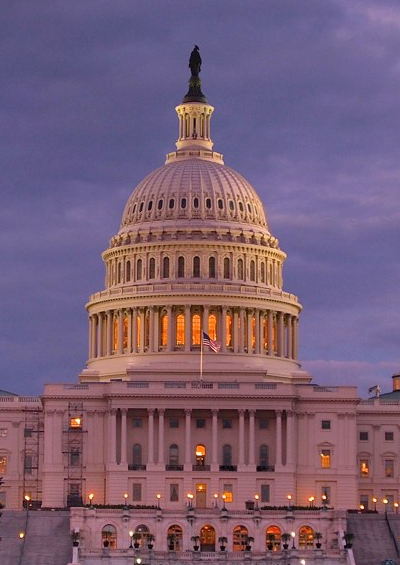The Democrats Might Lose the US Midterm Elections
In the U.S., we have moved to event-driven elections. Republicans could very well hold on to both houses of Congress.
November 1, 2018

Election polling is considered to be based on statistical models and fairly reliable. Yet, over the last few years, we have seen time and again how these statistical models have failed. They did not predict the election of Donald Trump, Brexit or a series of election outcomes in Europe.
The reason is that, with the 24-hour news cycle, elections — especially in the United States — are far less based on policy comparisons and instead far more event-driven. It is, therefore, of particular importance to carefully observe events just prior to Election Day.
For example, a wave of “white anger” and Trump’s successful exploitation of it made the 2016 presidential race between him and Hillary Clinton much closer than pollsters predicted.
But the decisive event that sealed the election for Donald Trump came 11 days before the election when FBI Director James Comey sent a letter to Congress to announce that he was reopening the investigation of Hillary Clinton’s email scandal. This move depressed Democratic turnout and revved up Republicans.
Fast forward two years. FiveThirtyEight, a very prominent election forecaster, suggests that there is an 85% likelihood that Democrats will regain the majority in the U.S. House of Representatives. They also assume that the probability of Democrats winning the majority in the Senate stands at only 15%.
Republicans will win a seat in the Senate
I agree with the latter prediction. The Senate race is indeed primarily a matter of math. There are 35 senate seats up for election, 26 of which are occupied by Democrats. Many of those seats are in conservative or so-called red states, such as North Dakota.
That is why, statistically, it was always a long shot for Democrats to flip the Senate. Yes, there might be surprises. For example, it is quite possible that the very unlikeable and unpopular Republican Senator from Texas, Ted Cruz, might lose his seat to the very likeable Democratic challenger, Beto O’Rourke.
This would be the first time that a Democrat would win a statewide race in Texas in 24 years. But net-net the balance might be 52-48 in favor of Republicans after Election Day.
The House of Representatives is far more difficult to predict. Still, in any ordinary election it would be tough for the Democrats to win the 24 seats they need to regain the majority in the House. In my estimate, Democrats will catch up, but they will fall short. I expect a net gain of 20 seats.
Why the Democrats won’t do that well
Why am I so pessimistic from a Democratic perspective? Event-driven politics. Everything seemed to go well for Democrats in the spring and even into the summer of this year. Their base was energized, and Republicans were more complacent.
Then, two things happened. First, the nomination of Brett Kavanaugh for Supreme Court Justice. The accusation of sexual misconduct, raised near the end of the confirmation process, was critical to the revival of the Republican base.
Indeed, it was a game changer – but for the Republicans, not the Democrats. Kavanaugh’s conduct before the Senate Committee, a full display of white male anger and condescension towards Democrats, may have been entirely unseemly for a prospective Supreme Court Justice. But Kavanaugh’s performance re-lit the very fuse that brought Trump to power in 2016.
Beyond anger, fear reigns
The second event that is likely shaping the outcome of the midterm elections occurred in October when a so-called caravan of migrants started its long march from Honduras to the U.S. border across Mexico.
This was a stark reminder to Trump’s disciples that building a wall to keep out unwanted foreigners or “invaders” as they like to label them was all-important, even though the 5,000 or so people on their way to the U.S. – if successful with their entry — account for just about 0.3% of illegal immigrants that enter the United States every year.
Yet, what matters is not the statistical data. What matters are the daily images of people breaking through fences, fighting the Mexican police as they march on. The oft-feared, but entirely surreal “assault” on the United States is vividly exemplified by these pictures.
The caravan thus provides rich fodder to Trump’s rhetoric who claims in stump speech after stump speech that the ranks of the caravan are filled with “Middle Easterners” and criminals.
Breathtaking cynicism works
The presumed “assault” also provides him with political cover to pretend he can end the 14th Amendment, thus effectively removing millions of children born to undocumented immigrants in the United States from citizenship rolls.
This move violates the U.S. constitution, but who cares as long as this creates “event momentum” driving more impulse-energized voters to the polls to vote Republican.
The cynicism behind this move is breathtaking. The real political purpose is to convince low-income white Americans to vote Republican. Other than race-baiting, Republicans – who are focused on servicing an entirely different socio-economic group – have next to nothing to offer to these people.
Maximizing Republican turnout
Before Trump, Republicans always feared that their voters were too rich to bother to vote in midterms. Now, no stone is left unturned to stimulate lower-income voters, the erstwhile harvesting grounds of Democrats.
With his rabid anti-Hispanic moves, Trump also demobilizes part of the Democrats’ voter base. They are susceptible to feeling that the party cares too much about immigrant voters.
And so it is that I believe that the Republican base is excited and will turn out in greater numbers than expected. At the same time, there is a sense of resignation among some Democrats even though they still want to believe in their own victory. Sensing the momentum change, many of the young people who were proud to drive the “resistance” may just not show up.
There is only one small silver-lining in this election. Democrats are likely going to do very well in state-wide races. Republicans hold governorships in 33 out of the 50 states in the United States and 26 of these governorships are in play next Tuesday.
After the 2016 election, there has been a big recognition among Democrats that “all politics are local.” It is there that their activism is most successful. I expect quite a few turnovers to the Democratic side. This is especially important as the so-called redistricting for the House of Representative will occur after the 2020 census and who holds power in the states greatly matters.
Conclusion
Still, the consequences of a Republican victory in both houses of Congress would be devastating for the United States. The brutality of political discourse will only sharpen. Republicans will feel encouraged to target social security and Medicare, which have been for far too long a thorn in their side. They will also feel enthusiastic about finally repealing Obamacare.
In the end, Republicans will lay the groundwork for a successful re-election of Donald Trump, who in spite of his overall low approval ratings is the most popular president among Republicans in the history of polling!
All that Democrats can hope for is a deep U.S. recession before the election in 2020 so that event-driven election outcome is finally on their side. But then, they would be called up again, in stereotypical fashion, to have one of theirs at the White House to clean up the economic mess after the Republicans.
Once upon a time, it was assumed to be the other way around – that Democrats were irresponsible economically and Republicans were the adults in the room. But that’s faint memory at this stage of the “evolution” of the U.S. political system.
Takeaways
In the US, we have moved to event-driven elections. Republicans could very well hold on to both houses of Congress.
Why am I so pessimistic from a Democratic perspective? Event-driven politics -- the nomination of Brett Kavanaugh for Supreme Court Justice and the so-called caravan of migrants heading to the US border.
Trump’s claim he can end the 14th Amendment violates the US constitution. But who cares as long as it drives more voters to vote Republican. The cynicism behind this move is breathtaking.
The consequences of a Republican victory in both houses of Congress would be devastating for the US. The brutality of political discourse will only sharpen.
Donald Trump, in spite of his overall low approval ratings, is the most popular president among Republicans in the history of polling!
